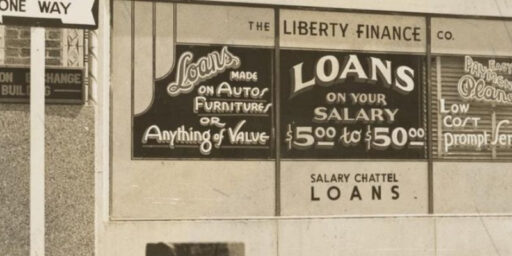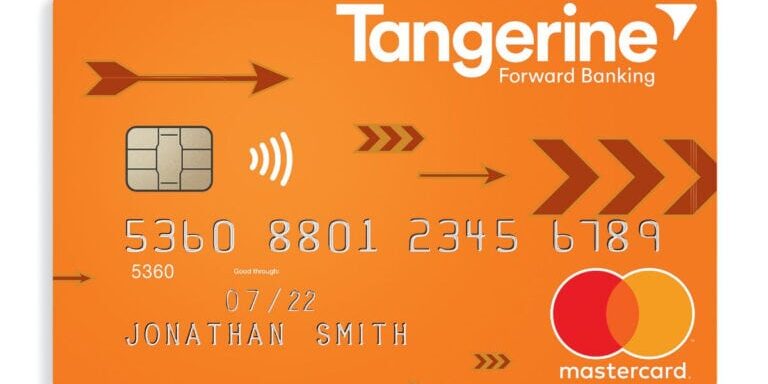How To Invest In IPO Stocks In Canada
In today’s episode of Investing Fundamentals with MDJ, we’re looking at IPO stocks – what they are, what upcoming IPOs are coming up, how to buy or sell IPO stocks, and which online brokers you can use to invest in IPOs
Then we’ll answer a few of the most frequently asked questions surrounding IPOs.
What Is an IPO?
IPO = Initial Public Offering
An Initial Public Offering is when a private company initially (that’s where the I in initial comes from) offers (and there is the O) its shares to the public (the P, completing the acronym). In other words, it’s the first time a private company is allowing anyone to purchase pieces of the company on a stock exchange.
Why Would A Company Offer Its Shares To The Public?
The simple answer is to raise funds.
Remember, this is the first time the public can buy shares of a private corporation. Up until this point, the company is most likely owned by the founder, perhaps some initial investors (or many investors), but the company can issue new shares to the public to raise funds.
These funds are typically used to grow the business, either by accelerating development using strategies such as hiring more people, expanding into new markets and regions, or marketing and acquiring more customers.
Whatever the case, a company is going to need money to grow (the faster, the better!) – and lots of it. Many companies that decide to pursue an IPO have a history of solid growth, and consequently, they hope the public wants to buy a piece ASAP.
How Do IPOs Work?
Without getting too technical – here’s how it works:
- A company wants to raise some money (by selling shares in the company)
- Company files to go public with the following:
- jurisdictional regulator, i.e. the SEC in the US or the typically Ontario Securities Commission in Canada
- And a stock exchange (e.g. Toronto Stock Exchange in Canada, or the NYSE or NASDAQ in the US)
- They get an investment bank to underwrite them (guarantee payment in case of damage or financial loss and accept the financial risk for liability arising from such guarantee)
- Stocks of the company become available to the market
- Company stocks are available on the market through said exchange above, which enables relatively easy trading
- Institutional investors (as well as investors like yourself, typically referred to as retail investors) can buy the IPO stocks from several brokers, including online ones such as Questrade, Qtrade, Wealthsimple, and BMO Investorline.
Example: Rivian, a potential competitor to Tesla Motors, recently went public on the Nasdaq exchange in the US. It filed its intent to go public months ago, and the banks underwriting these stocks were underwritten by Morgan Stanley and J.P. Morgan.
At IPO, Rivian sold approximately 17% of its shares (reports indicate as much as 153 million shares were available to the public out of the company’s 883 million outstanding shares), at a starting price of $78 USD. Consequently, the company’s IPO valuation came in at $86 billion USD. At writing, the price has settled to about $128 USD per share (peaked at $172 USD), which boosted the company’s valuation to $113 billion USD.
Another example of a great IPO is the Canadian payments company Nuvei. While it went public back in late 2020 and did not have a huge initial jump as Rivian did, the company has posted significant growth numbers since then due to both strategic positioning and acquisitions.
At IPO, Nuvei opened to institutional investors at $45 CAD a share, selling 39% of its total shares, and raised close to $1 billion dollar CAD, at an approximate valuation of $3 billion or more. As of writing, Nuvei is trading at $126 CAD, meaning that if you had bought at IPO, you would have seen a 280% return on investment!
Both examples above are of companies that are now public, meaning you can buy this stock (stock symbol RIVN.O) on the market via online brokers such Qtrade, RBC Direct, Questrade, TD Direct and more.
See our comparison of Canada’s best online brokerages for more information.
What IPOs Are Coming Up That I Should Look Out For?
Truth be told – sometimes it is challenging to know precisely when a company is going to IPO. At the time of writing, there are no upcoming or majorly anticipated IPOs in the Canadian market for the rest of 2021.
In other words, there do not seem to be any significant forthcoming IPOs on the TSX for 2021. That said, below is a list of Canadian companies we’d love to see IPO and would be worth looking out for:
Canadian Companies to Look Out for That May IPO
Borrowell
- What they do – offering free Canadian credit scores – helps you understand what credit you have, and they profit by connecting you with potential products best suited to the type of credit you have
Ada Support
- What they do – help companies interac more efficiently with users through automated chat boxes using AI. They recently raised close to $130 million this year, are valued at about $1.2B and count clients such as Facebook and Zoom.
Wealthsimple
- What they do – Canada’s first commission-free stock trading platform, offering automated investing, saving and spending, and tax filing.
- We’ve written about Wealthsimple extensively on MillionDollarJourney, with recent articles comparing it to TD Direct and also looking at their no-free online investment platform. To read more about it, check out our Wealthsimple review.
- It would be great to see Wealthsimple potentially IPO one day, maybe in 2023? Maybe later? But we’ll have to wait and see; we see and anticipate a high potential for this company.
Other Companies To Look Out For That May IPO
Stripe
- What they do – offers payment processing services to many popular eCommerce businesses and platforms, such as Shopify and BigCommerce. If Stripe IPOs, this might be one of the biggest IPOs ever. The company is considered one of the most valuable startups in the US and has an estimated value of $95 billion as of its last funding round. Many expect Stripe to IPO sometime in 2022.
Instacart
- What they do – this grocery delivery app was anticipated to IPO this year in 2021, but it’s looking more and more that this will be pushed to 2022. We never know, so keep an eye out. Its prospects are pretty good; it is highly available in the US and Canadian market and has a potential valuation of $50 million.
- What they do – Reddit is many things to many people. To some, it’s a discussion board and web content rater. To others, it’s a social news aggregator. It’s hard to avoid or not have heard of Reddit for netizens. It has brought us things like wallstreetbets, leading to some of the wildest rides in stock prices this year.
In fact, we wrote about this whole phenomenon at the beginning of 2021 here. Reddit is simply a force and community that cannot be underestimated, and there is a lot of talk of Reddit potentially IPOing in early 2022 at a valuation of between $10 to 15 billion. Keep your eyes open for this one, as this can be an exciting company and stock to watch.
List Of Canadian Companies That Had an IPO This Year
Pet Valu
- People love their pets, and with the number of pet owners increasing year over year (especially in the central city centers), this company that completed its IPO in the summer should do well—also, pandemic companionship. Covid hit us hard, and for those who wanted to have some companions, people went got a record number of pets during this time.
- The stock was listed in June of 2021, and as of writing, the stock has increased 19% in price since it was listed. Not bad!
Neighbourly Pharmacy Inc.
- One of Canada’s fastest-growing networks of independent community pharmacies that also provides healthcare delivery. A potential competitor to major pharmacy chains in Canada such as Shoppers, Jean Coutu, IDA/Rexall. This company IPOed in May of this year, and as of this article’s writing has grown 35% since!
How do I Buy and Sell IPO Stocks in Canada?
So, is there a particular way or process that you need to be aware of or go through to buy IPO stocks in Canada?
The answer is no!
Anywhere you can buy stocks, you can pretty much buy IPO stocks!
Remember, IPO means that a private company is now public and listed on a stock exchange (usually a major one). That means any online broker you can buy stocks with now will have IPO stocks when they are listed. Whatever the case, a company is going to need money to grow (the faster, the better!) – and lots of it.
Best Brokers for IPO Investing in Canada
This list could have simply been our list of our best Canadian Online Brokers, which we still highly recommend since any of these will do the trick. Still, we’re explicitly targeting IPOs in this article, so why not look at brokers that can give you an edge with investing in an IPO? This list is much smaller, and here are our recommendations:
Qtrade
- Why? Simple – New Issues Centre. It offers detailed information about the latest and upcoming IPOs. Not only that – it’s free to access as a Qtrade user. Other excellent features include:
- A list of the latest IPOs and new issues.
- Can sign up for alerts on newly available IPOs by subscribing to their IPO bulletin.
- Read here for our In-depth Qtrade review,
Questrade
- Like Qtrade, Questradet offers detailed information about the latest and upcoming IPOs and in-depth analyses to help you find excellent new opportunities. Also, like Qtrade, it’s free to access as a Questrade use and you can sign up for alerts on newly available IPOs by subscribing to their IPO bulletin. Other excellent features include:
- Open issues, including current available inventory.
- Highlights fixed income deals, new structured products, and secondaries for equities.
- See here for our In-depth Questrade Review
Scotia iTrade
- Why – can sign up for new IPO issue alerts (i.e. alerts of companies that have or are going to IPO) and provide notification when?IPOs?&?New Issues?are available at Scotia iTRADE.
- In-depth review of Scotia iTrade Review
Investing in Pre-IPO Stocks
So, you’re probably thinking, if I could invest in IPO stocks so easily, why not get in before a company goes public?
That way, when it does IPO, I can make some amazing quick cash!
For example, let’s look at Rivian again, which started around the $78 USD mark. As of writing, it has risen to $172, an incredible 220% increase!
If you could have gotten in earlier, your potential for returns could have been 250% or more!.
But alas, there is no natural way to have your cake and eat it too.
Most pre-IPO purchases are typically made by the private sale of tranches or blocks of stocks.
This is usually reserved by and for significant hedge funds, private equity firms and high-net-worth individuals. The reason this is done for multiple reasons, mainly being:
- Institutions and firms that buy pre-IPO stock help establish a base or floor price. This is good in case the stock does not immediately go up when it opens to the public, protecting any drop since institutions typically have to wait a certain period – called a lock-up, before they can sell their stock.
- To raise money before going public (which can help with the process of going public of strengthening the company’s position as it does go public)
- Recruit help and assistance from the institutional investors to help the company shore up governance or other areas of weakness before going public.
So, does that mean that there is no way to get into pre-IPOs? No, but the price of entry could be extremely high, as well as risky, and we at MillionDollarJourney would advise against it for the most part.
But if you are interested, a quick search will find you specialized brokers who deal in such matters. Keep in mind that most of these brokers require a minimum purchase of $100,000, have a lock-up period, and a dozen or so conditions.
On a final note, investing in companies pre-IPO has a significant amount of risk, including:
- You would be investing in companies that have not been publicly securitized (the public hasn’t seen their financials or really understand how their business is doing)
- A significant fall in share price at the time of going public. Major examples include:
- Uber
- Casper (the bed people)
- McAfee (the anti-virus and security people).
All great companies with a lot of things going for them, but all had poor IPOs.
Investing in IPO Stocks – FAQ
We got a lot of questions over the last few months that we wanted to answer but could not really find space to answer them above! Fret not; this is the spot that we’ll try to tackle them.
Should You Invest in IPO Stocks?
This will differ from person to person, but the basic thing you should be asking yourself is:
- Do you want exposure, which includes the potential, but also the high risk, of a newly listed company?
- Are you comfortable with the amount of information you have on a company before (or just after) they go public?
- Do you believe the company has good potential prospects and their business and financials will stand up to the test of public scrutiny?
- Are you comfortable with large fluctuations in value?
If the answer to any of the above is no, then it is likely that Canadian IPOs and US IPO are not for you.
Instead, we would recommend the following strategies instead:
- Investing in Canadian Dividend Stocks.
- This is great in you take advantage of these in concert with the Smith Manoeuvre.
- Index ETFs – a well diversified and low cost strategy that has served many investors well.
- See here for our list of the best ETFs in Canada or the best Canadian all-in-one ETFs.
I've Completed My Million Dollar Journey. Let Me Guide You Through Yours!
Sign up below to get a copy of our free eBook: Can I Retire Yet?










